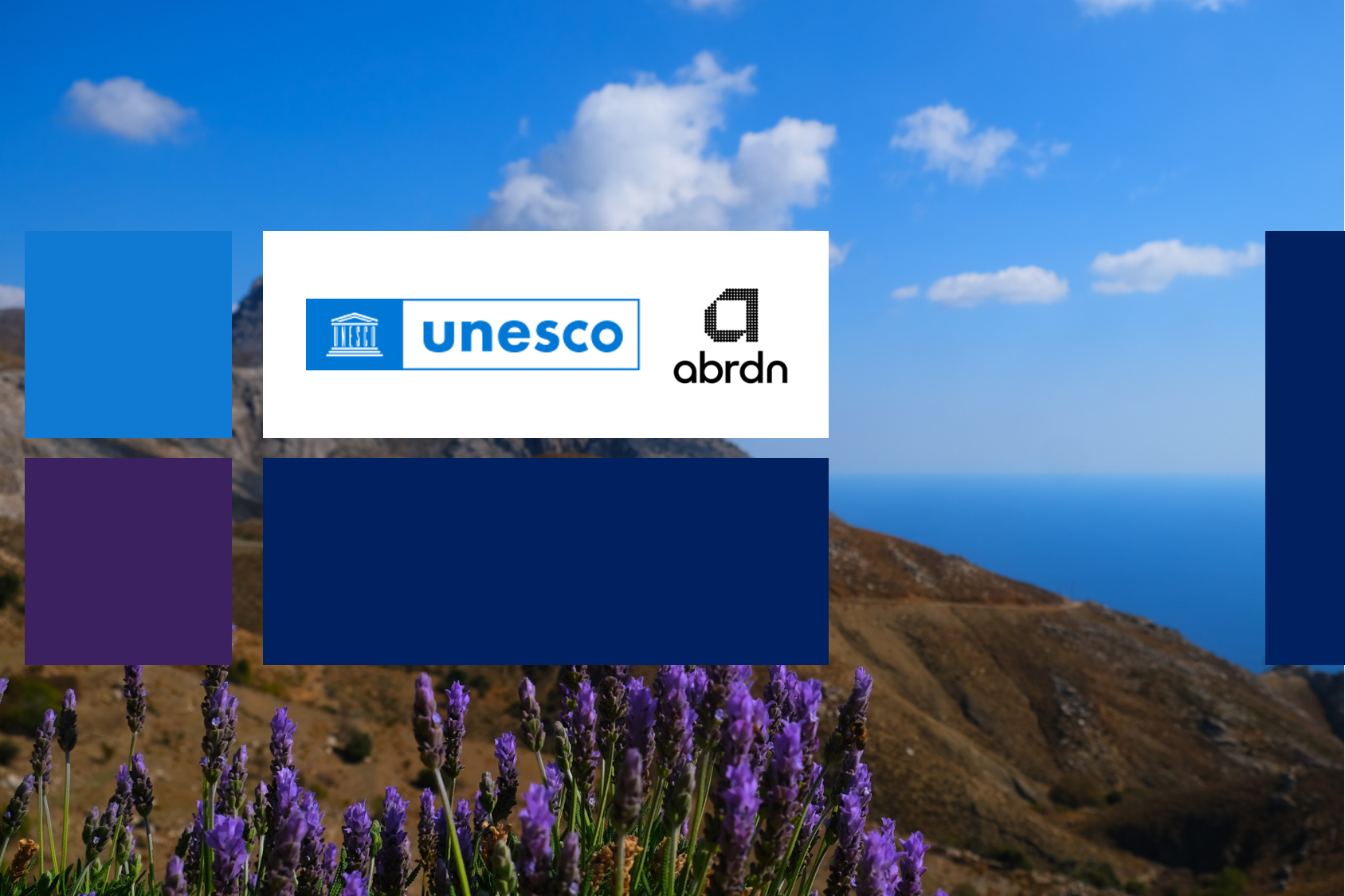The Asterousia Mountain Range Biosphere Reserve, located in the southernmost area of Europe with a long coast and wide marine zone in the Southern Cretan / Libyan Sea, is characterized by an exceptional wealth of habitats and species. Just as other biosphere reserves and protected areas, the Asterousia Biosphere Reserve is increasingly being affected by marine litter, which is building up, threatening habitats and species and inhibiting sustainable development.
MIO-ECSDE is leading a one-year-long project entitled “Monitoring marine litter and generating fit-for-purpose data through a participatory science approach in Asterousia Biosphere Reserve”, within the framework of an initiative undertaken by UNESCO and the abrdn Charitable Foundation entitled “Promoting sustainable development through UNESCO’s programmes and sites”. Running over 3 years, the initiative focuses on promoting a more sustainable and climate-neutral Europe by working through research and education, with the goal to develop innovative solutions to environmental and climate change challenges in selected UNESCO sites, 5 per year. Following a comprehensive selection process, the first set of 5 sites was selected for this year, among which the Asterousia Biosphere Reserve and MIO-ECSDE’s project.

- Level of completion 100%
The aim of the project is to tackle the marine litter threat in the Asterousia Biosphere Reserve (BR). By improving the marine litter knowledge base and evidence in the BR, the project will concretely contribute to its sustainable development. Through educating and engaging local communities (in particular youth) in generating fit-for-purpose marine litter data through a participatory science approach, tailored-made marine litter prevention and mitigation measures and innovative solutions will be developed, strengthening the management plan of the BR.
Together with the Mediterranean Education Initiative on Environment and Sustainability (MEdIES), the Hellenic Marine Research Centre (HCMR), the University of Crete and its Museum of Natural History, MIO-ECSDE seeks to showcase how community-based research can deliver the “Science We Need for the Future We Want”, within the context of the UN Ocean Science Decade and the Ocean Literacy Framework.
The aim of the project will be achieved through the following set of actions:
- Replicate Mediterranean-wide tested and scalable marine litter monitoring and research approaches. Why? To achieve good environmental status in its coastal and marine waters and meet the target of SDG14 on life below water that calls upon the prevention and significant reduction of marine litter pollution by 2025.
- Design and run a high-calibre and effective participatory science campaign. Why? To generate fit-for-purpose marine litter data and co-create scientific knowledge by engaging all societal actors (in particular youth and upper primary/ lower secondary schools) within the context of the UN Decade of Ocean Science for Sustainable Development and the Open Science Agenda.
- Identify and promote innovative ‘green’ and ‘blue’ solutions, with special emphasis on social innovations. Why? To prevent and mitigate marine litter in the UNESCO BR of Asterousia and use the topic of marine litter as a vehicle to promote sustainable development and climate change mitigation and adaptation (SDG13).
- Improved knowledge and evidence on marine litter in the Asterousia Biosphere Reserve.
- Strengthened management plan with tailor-made marine litter prevention and mitigation measures and innovative solutions.
- Enhanced capacities of local communities (in particular youth) in generating fit-for-purpose marine litter data through a participatory science approach.
- Sensitized local communities on the marine litter threat and on ways to tackle it.
Coordinator:
- Mediterranean Information Office for Environment, Culture and Sustainable Development (MIO-ECSDE)
Partners:
- Mediterranean Education Initiative on Environment and Sustainability (MEdIES)
- Hellenic Marine Research Centre (HCMR)
- University of Crete and its Museum of Natural History
Title: Monitoring marine litter and generating fit-for-purpose data through a participatory science approach in Asterousia Biosphere Reserve
Funding: UNESCO and the abrdn Charitable Foundation
Project duration: 20 September 2022 – 20 August 2026 (12 months)
Project budget: $ 25,000
For more info: Thomais Vlachogianni, Project Coordinator, vlachogianni@mio-ecsde.org